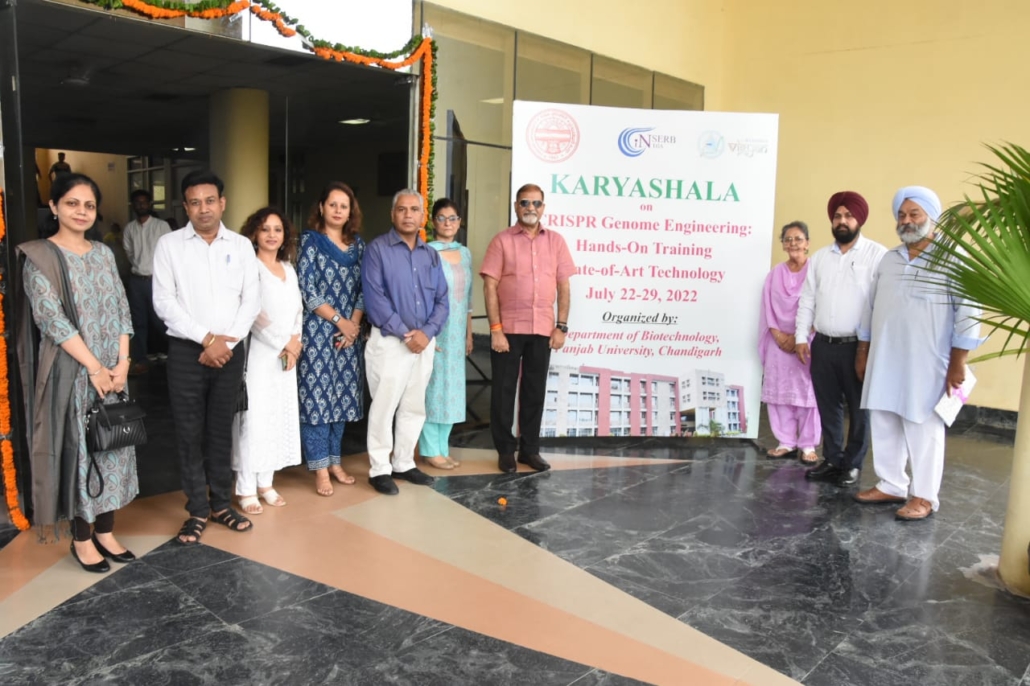Demokretic Front, Correspondent, Chandigarh July 22, 2022 :
KARYASHALA on CRISPR Genome Engineering: Hands-on Training State-of-Art Technology kick started on 22th July 2022 at Department of Biotechnology, Panjab University, Chandigarh. Around 50 delegates from different parts of the country attended the event. Professor Kashmir Singh, Chairperson of the Department welcomed the distinguish guests, speakers and participants and introduced the theme of workshop. The workshop was inaugurated by Chief Guest, Professor Raj Kumar, Hon’ble Vice-Chancellor, Panjab University, Chandigarh and Dr. Prabodh Kumar Trivedi, Director, CSIR-CIMAP, Lucknow was the Guest of Honour and Keynote Speaker.
Hon’ble Vice-Chancellor Professor Raj Kumar talked about the importance of implementing scientific technologies for the betterment of society in general. He focused on the concept of ‘lab-to-land’. He emphasized on the use of research endeavours in such a way that these translational research techniques can benefit mankind at a local level.
Dr. Prabodh Kumar Trivedi presented his work on “Plant genome-editing: tool for functional genomics and crop improvement”, where he demonstrated his work primarily in the field of secondary plant metabolites and environmental biotechnology. He talked about how his group carried out silencing of various genes involved in flavonoid biosynthesis. In addition, he also demonstrated his excellent work featuring generation of nicotine-less Nicotiana plants. He demonstrated involvement of miR858 and associated miPEP in regulation of flavonoid biosynthesis and plant development. He also talked about genes and miRNAs for development of heavy metal tolerant plants.
Dr. Santosh Kumar Upadhyay talked about the basics of genome editing tools i.e., ZFNs, TALENs and CRISPR. He also talked about the limitations of ZFNs and TALENs and why the need for CRISPR/Cas systems arose. Further, the details of CRISPR components, designing of targets and its applications were also discussed.
The highlights of the second half of the event were hands on training of basics of genome editing and applications, multiplexing and other advancement in CRISPR/Cas systems with participants.
In all it was knowledge enriching experience for the students, informed Professor Kashmir Singh, organizing secretary of the symposium.




